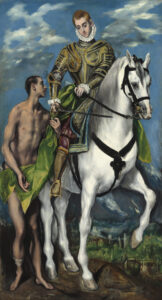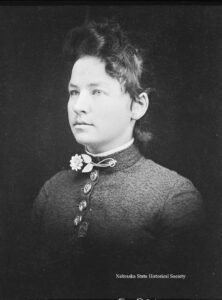Arts & Entertainment
Review: "Everyday Virtues" Applauds Common Sense and Good Humor

Ole Miss alumnus Jim Autry co-wrote his latest book, “Everyday Virtues,” with his son, Rick.
Book Review: “Everyday Virtues: Classic Tales to Read with Kids.” By James A. Autry and Rick Autry. Illustrations by Mickey Carlson. Smyth & Helwys Publishing. 96 pages. $18.00.
Editor’s note: James Autry will sign copies of “Everyday Virtues” at noon, Thursday, November 9, at Square Books.
One of the first tales collected in “Everyday Virtues” may be the oldest, saddest tragedy in the history of the world.
It’s the tale of a master and his dog. The master marries, and he and his wife have a child; the dog appears to resent the child; the master and his wife are called out of the house; the master returns and meets the dog at his doorway, with the dog’s mouth dripping blood; and the master kills the dog, thinking the dog has killed his child – only to find, behind the door, a snake or wolf that the dog has killed, defending the child.
This tale is so old that it was first written down in Sanskrit. It may have been told a thousand years before Aeschylus and Sophocles. The story still warns against sudden anger, and its bitter irony remains piercing.
For their book, “Everyday Virtues,” Jim Autry and Rick Autry have chosen twenty-four stories. These stories were selected, Jim Autry writes, “because they illustrate what (we) call ‘the kind-hearted virtues … The everyday virtues we have chosen to feature are justice, courage, humility, compassion, freedom, and respect.” This mission is a bold one, but the authors have chosen well.
In one story, a low-born general loves a princess—which sounds familiar, but the story comes from the mountains of Peru (the princess’s father rules the Inca kingdom). A duke is tricked by an angel in another story. A shape-shifting rabbit teaches a girl the uses of herbs. A young woman of the Cheyenne nation gallops into rifle fire to rescue her brother.
There is a tale of a mountebank-turned-monk who juggles before a shrine of the Virgin, scandalizing the monastery, until the Virgin shows her approval. Aesop is here, imagining a wolf and a dog debating freedom; so is Socrates, deflecting a compliment with a typically sarcastic, self-effacing put-down, and Pheidippides, paired with John Stephen Akhwari, a Tanzanian runner who gasped for breath in the thin mountain air of Mexico City but struggled to the finish line of the 1968 Olympic marathon.

Saint Martin divides his cloak with a beggar – El Greco
A Roman officer who will be remembered as Saint Martin of Tours not only divides his cloak with a beggar, but also refuses to fight in battle. Sent out unarmed to face a hostile army, he somehow brings about a peace. (What unremembered facts lie behind that story? Bishop Martin would be an uncommonly effective peacemaker in ecclesiastical disputes.)
As well as loyalty and perseverance, these tales applaud common sense and good humor. Three Brahmin scholars studiously set about reviving a lion, while a fourth futilely warns them that they should be climbing trees. (Any reader can see what is coming.) When a street vendor demands that a bystander pay him for enjoying the smell of the food he cooks, a judge rules the cook must indeed be paid, with the pinging sound of the bystander’s coin.
The authors suggest that these stories be read to children. But following each story is a note on its sources, and in these adults will find something for themselves.
The idea that virtues are eternal is underlined by the range of this book—by the distant origins of these stories and the ironic paths they have taken as they traveled. This suggests that demonstrations of virtue will be remembered and followed (perhaps against overwhelming odds, in the same way we say that the truth will out).
William Caxton, the first printer to work in England, found so much wit and truth in Aesop’s Fables that he translated the book and put it into print. The conquistadors and their successors ignored the Inca legend for two centuries, until a playwright and an academic took up the story. The story of the four Hindu scholars offers a lesson to brahmins of all faiths and professions.

Minnie Freeman
The most modern tale here is a chapter from the life of Minnie Freeman, of Ord, Nebraska, and dates to January 12, 1888. Miss Freeman was a nineteen-year-old schoolmarm, teaching thirteen children in a one-room, sod-roofed schoolhouse, when a monstrous blizzard roared down. After the door blew off the school, she tied the children together in pairs and linked them to her own wrist, then led them into the teeth of the wind, toward a farmhouse half a mile away. All reached safety, and Miss Freeman won acclaim:
“Minnie was celebrated as a heroine. The education association of Nebraska awarded her a gold medal. She had a song written for her. Someone made a statue of her head and sent it around the entire country so people could see it. More than eighty men asked her to marry them, and she turned them all down.”
Miss Freeman could not avoid all honors, however. The people of Nebraska set her story in Venetian glass in a bay of the state capitol. (And she did eventually find a youth who proved worthy of her hand.)
There is a feminist angle to this story—also something of the veneration rightly paid to saints. Meditating on this may teach something about the way we commemorate virtue.
Allen Boyer, the Book Editor of HottyToddy, is a native of Oxford. His book “Rocky Boyer’s War,” a WWII history based on his father’s wartime diary, was recently published by the Naval Institute Press.





























